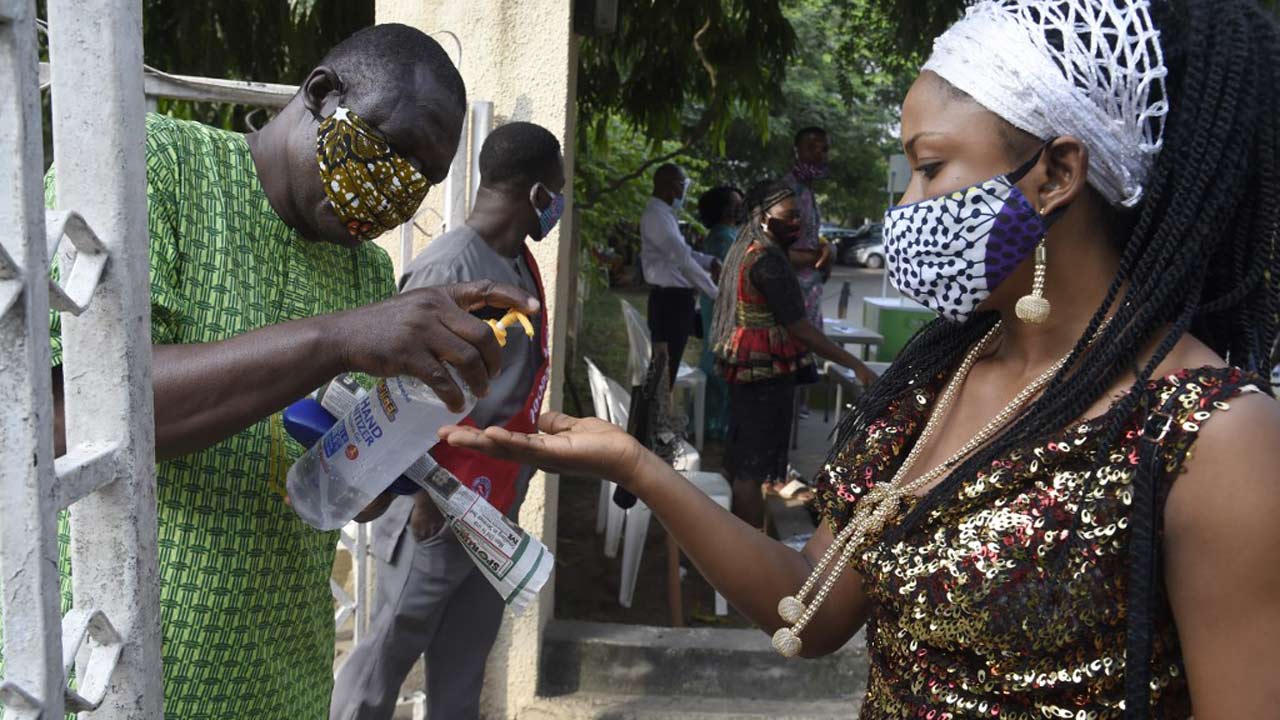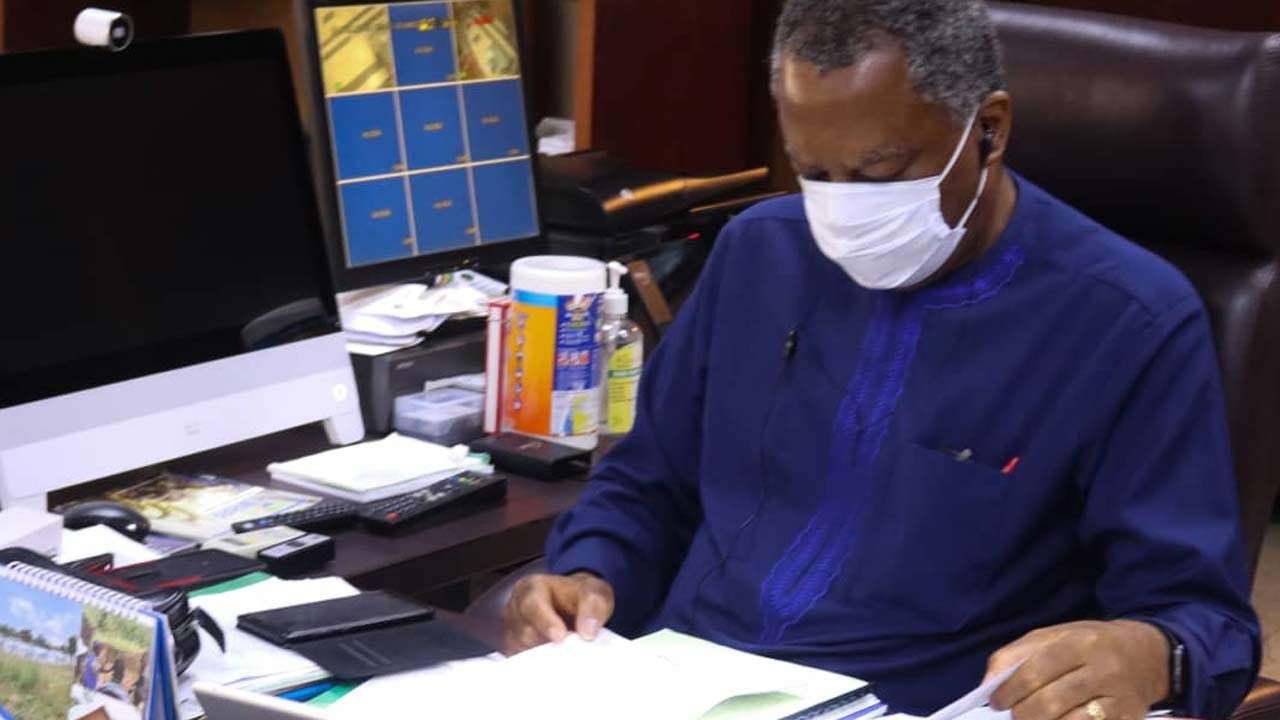
• Minister tells Nigerians to adopt treatment protocol
• INCB, WHO, UNODC insist on approved medicines
• Africa marks six months of first COVID-19 cases
Nigeria’s effort to contain the Coronavirus Disease 2019 (COVID-19) pandemic may have been slowed by fatigue, helplessness and mistrust among citizens and governments. Medical experts, who spoke with The Guardian on the matter, reacted to the submission of the Minister of Foreign Affairs, Mr. Geoffrey Onyeama, who lamented how challenging it is to contain the virus.
He also advised government to adopt a treatment protocol for citizens.
Smarting from his recent experience as COVID-19 patient, Onyeama had argued that millions of citizens, who might not be as thorough and conscious as he was, might already be infected without knowing it because they had not been tested.
He said it would be better to put as many people as possible on preventive and treatment cocktails ahead of eventual manifestation of symptoms or full blown illnesses.
A virologist and Chairman, Expert Committee on COVID-19, Prof. Oyewale Tomori, told The Guardian that Onyeama’s suggestion to the Minister of Health, Dr. Osagie Ehanire, portrayed the helplessness of Nigeria’s situation regarding COVID-19 and the disarray in the country’s containment efforts.
“The general public has no confidence in the figures government is dishing out on a daily basis, many people have refused to wear masks, abandoned social and safe distancing and we now hear that fake sanitisers may be in the market. This is the state of our nation; and tell me which government, even the competent ones, that will not be helpless.
“I think our COVID-19 control is in near total disarray, as only very few trust the government on COVID-19, with only a few seeing an end in sight, as COVID-19 fatigue is compounding the lack of trust in a government that has never engendered trust,” he said.
Tomori, who is also the pioneer vice chancellor of Redeemer’s University and a consultant to the WHO, noted that Onyeama was not the only government official to express helplessness, saying: “The entire Presidential Task Force (PTF) on COVID-19 at one time or the other has expressed frustration and accepted some degree of helplessness over our national response to the COVID-19 disaster.
“How more helpless can the government and the PTF be when different state governments trample on PTF guidelines?
“How many times has the PTF threatened to re-lock us up because of soaring number of COVID-19 cases? Lockdown or no lock-down, we seem to be making no headway.”
He observed that the only time the numbers went down was Sallah holidays when testing was abandoned.
He cited conflicting claims between governors and the PTF as yet another evidence of disarray.
“We also know of some states that have vehemently disputed and disagreed with the daily case returns published on the Nigeria Centre for Disease Control (NCDC) site.
He noted that religious leaders had not been left out of the fray, as they challenged and threatened the PTF with threats.
“The next day, it is the turn of school proprietors threatening to wring off the necks of PTF members if schools were not opened for collection of fees.”
Tomori said the situation demanded the President meet with governors, explain and remind them of the national emergency.

“He should seek their cooperation in controlling the outbreak through persuasion and not through the outdated 1926 Quarantine Act. Our president should let his governors know that until each person in every state, local government area, ward, street and house is free of COVID-19, Nigeria is not free. What we need is a coherent national approach that recognises that this is not an All Progressive Congress (APC) or a Peoples Democratic Party (PDP) matter; it concerns the very soul and existence of our nation.”
A public health physician/epidemiologist and a member of Lagos State COVID-19 Response Team, Prof. Akin Osibogun, told The Guardian: “The statement credited to the Minister of Foreign Affairs is more or less an acknowledgement of the fact that we are in the community transmission phase of the pandemic. For a disease in which a large number may be asymptomatic or pre-symptomatic and capable of transmitting the virus, it may be to look for a vaccine and/or a mass treatment strategy.”
Osibogun, who is the immediate past Chief Medical Director of the Lagos University Teaching Hospital (LUTH), Idi-Araba, added that Onyeama’s statement suggested a mass treatment strategy.
“Research is ongoing on that. There is no harm in requesting a treatment strategy, which will be rolled out as soon as research brings it out,” he said.
Chairman, Pharmaceutical Manufacturers Group of the Manufacturers Association of Nigeria (PMG-MAN), Dr. Fidelis Ayebae, told The Guardian the minister was only being pragmatic.
He stated that most Nigerians were ‘on their own’ and that not many had been tested out of the numbers that should be tested.
“The minister has said the truth to power. Though the doctors may not agree but a treatment protocol and cocktail of drugs for treatment need to be made known for those that have no access to tests. Citizens are self-medicating more. It is the reality. If they don’t, they may die before they get help. People are scared. This unorthodox recommendation will help our mental health. I have lost friends who have no business dying if they got help. Dealing with tough times require thinking outside the box,” he added.
The Director General of the NCDC, Dr. Chikwe Ihekweazu, in his reaction, said that the Federal Government was not considering recommending some medications for Nigerians who had no access to testing.
But Ihekweazu while responding to The Guardian inquiry on whether government was planning to introduce treatment for COVID-19, said, “This is what we hope a safe and effective vaccine will do, but for now, we have to rely on public health and social measures. This includes frequent hand-washing with soap and running water, maintaining a distance of at least two metres from the next person, wearing a face mask when in public settings, avoiding direct contact with people and other measures as shared in our various guidelines. These measures are in place to reduce the risk of spread of the virus that causes COVID-19.”
On efforts to reach the 85 local government areas in the country where no testing has been done, the NCDC boss told The Guardian the centre was working with state governments, to establish sample collection centres in LGAs, adding that the NCDC was also working with the PTF and other agencies to develop innovative approaches where needed.
Ihekweazu’s reaction came just as the Guild of Medical Directors (GMD) said the suggestion by Onyeama supported the need for evidence-based medicine in Nigeria.
GMD lamented that Nigeria had not been taking medical research seriously, saying some groups of researchers in Nigeria had applied to Tetfund, PTF and CBN for funding to no avail.
President of the Guild, Prof. Olufemi Dokun-Babalola, said, “It is a scandal that so many local governments have not had access to testing. Other West African countries are doing better than us! We need to emphasize the important things in Nigeria: testing testing testing, science, science, science”.
Meanwhile, the International Narcotics Control Board (INCB), WHO, and the United Nations Office on Drugs and Crime (UNODC) have released a statement calling on governments to ensure the procurement and supply of controlled medicines in countries that meet the needs of patients, both those who have COVID-19 and those who require internationally-controlled medicines for other medical conditions.
The call came as Africa, on August 14, marked six months of COVID-19 presence on the continent.
At the onset, COVID-19 mainly affected capital cities; the virus has spread now moving from high-density urban areas to informal settlements and rural areas with lower population density.



